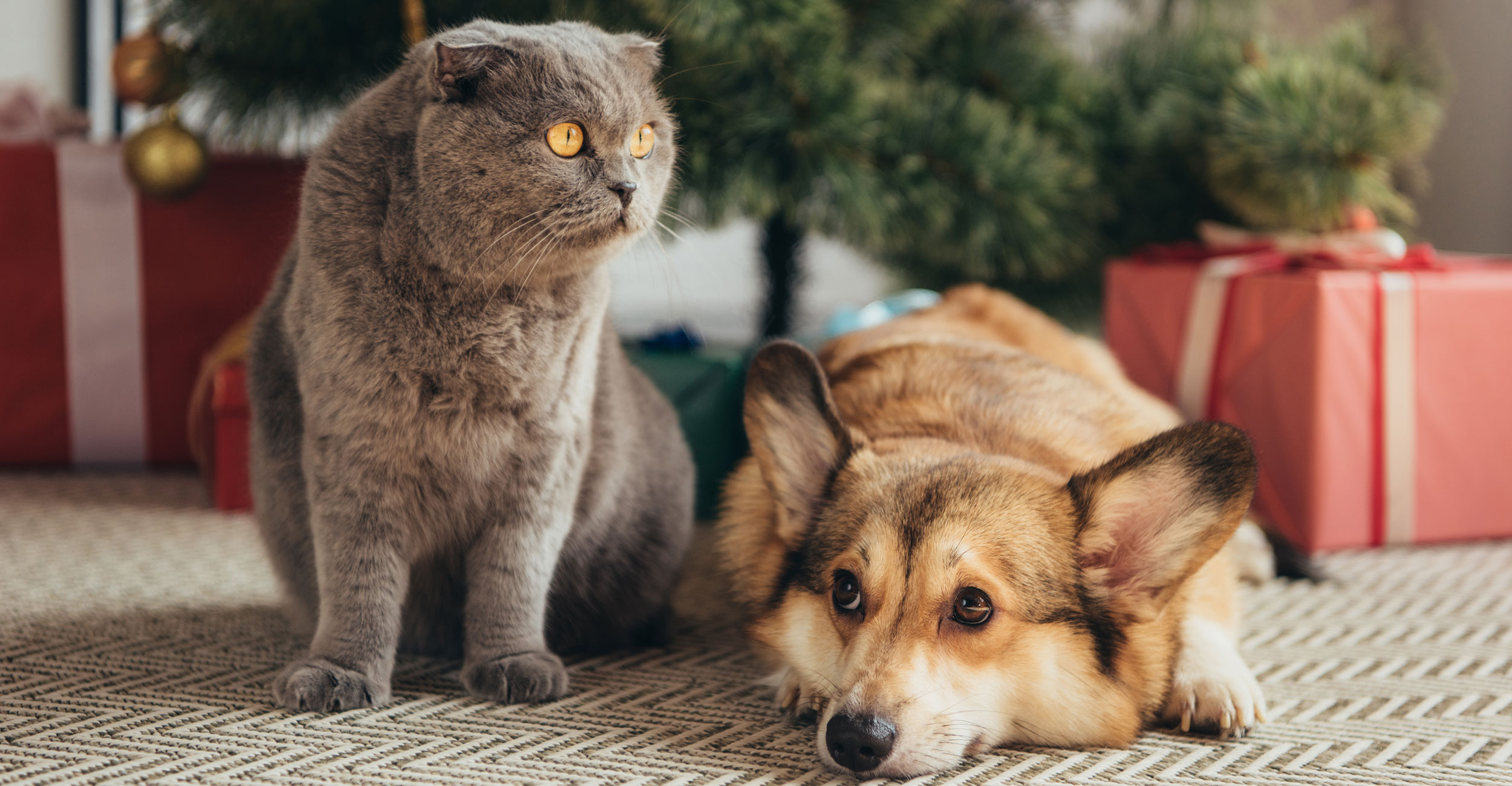
Top 5 things to watch out for pet safety during holidays
Wednesday, December 13, 2023
Media Contact: Kinsey Reed | Communications Specialist | 405-744-6740 | kinsey.reed@okstate.edu
It is common for us all to indulge in some high-calorie foods during the holidays, but what about our pets? Can they join the feast? Oklahoma State University assistant professor of behavior science Dr. Leticia Fanucchi advises against it and offered five tips to consider when it comes to food and pets this holiday season:
- The No. 1 culprit is my favorite item … chocolate.
Chocolate contains methylxanthines like theobromine and caffeine. These two are the reason why we love it so much, as these substances have a stimulant and calming effect all at the same time. However, chocolate is not well metabolized by pets, accumulating in the body and making them sick. Chocolate intoxication can be very serious and cause tremors, vomiting, diarrhea, agitation, increased heart rate and even seizures. Keep those chocolatey treats away from dogs and cats.
2. Grapes mean good luck for the new year in some cultures, but they’re bad luck for pets.
Both fresh grapes or raisins, very common items in holiday dishes, can cause kidney disease in pets due to the tartaric acid present in them. The most common signs you will see are vomiting, diarrhea and increased water intake. Acute kidney disease is a serious medical emergency and time is crucial to start treatment with IV fluids if you want to save your pet’s life. Keep the grapes in the fridge, and do not leave them spread around coffee tables or food trays. They are sweet and pets are attracted to sweet stuff.
3. Fatty foods
Are you a fan of roast turkey with gravy? So are pets! However, the fat contained in gravy and turkey skin … not to mention bacon and butter, can cause a condition called pancreatitis. This acute disease can affect other organ systems such as the liver and kidneys, leading to more serious consequences such as blood clotting. Vomiting and diarrhea are the first signs, so do not ignore these signs especially if you know your pet stole that turkey leg or went to town in the gravy boat. Emergency help is paramount as pets can perish quickly from an acute pancreatitis crisis.
4. Who knew garlic and onions could be bad? But wait, bread rolls too?
Yes, garlic, onions and chives are healthy for people, but really bad for pets. Allium species are toxic and can cause hemolytic anemia, which means decreased red blood cells. Signs normally appear after a few days of ingestion and include vomiting, diarrhea, jaundice and lethargy. Yeast-risen foods are delicious, but also bad for pets. The yeast can ferment in the stomach and produce toxic levels of ethanol … yes, alcohol! Ethanol toxicity leads to metabolic acidosis which makes the blood glucose drop significantly causing seizures, respiratory depression and even cardiac arrest, so keep the bread in the pantry.
5. Last but certainly not least, sugar-free treats.
Pets cannot metabolize xylitol, the artificial sweetener in most sugar free foods,
causing low blood sugar, which leads to ataxia (incoordination), seizures and even
death from hypoglycemia. No sugar-free treats for pets this season … or ever.
Several foods we love can be very harmful for our beloved pets, so let’s get some
special cat and dog treats for them this year and keep human food away from their
reach. If you notice vomiting and diarrhea after the holiday, it is a sign your pet
may have gotten into something it shouldn’t have, so do not think twice, take them
to the vet. Time is crucial for preventing long-term damage or death.
Dr. Leticia Fanucchi is a Clinical Assistant Professor and head of the Behavior Service at Oklahoma State University’s College of Veterinary Medicine.
